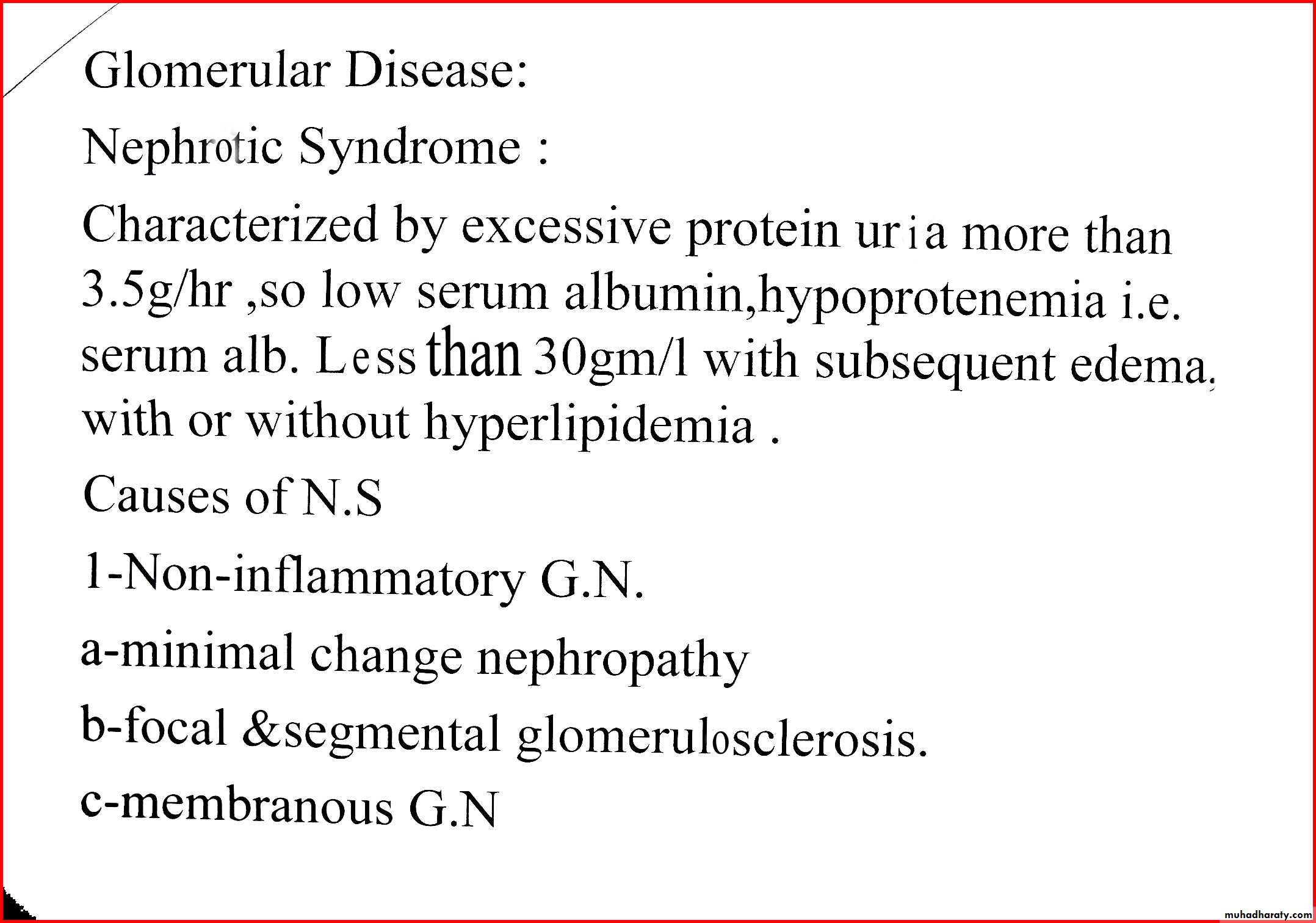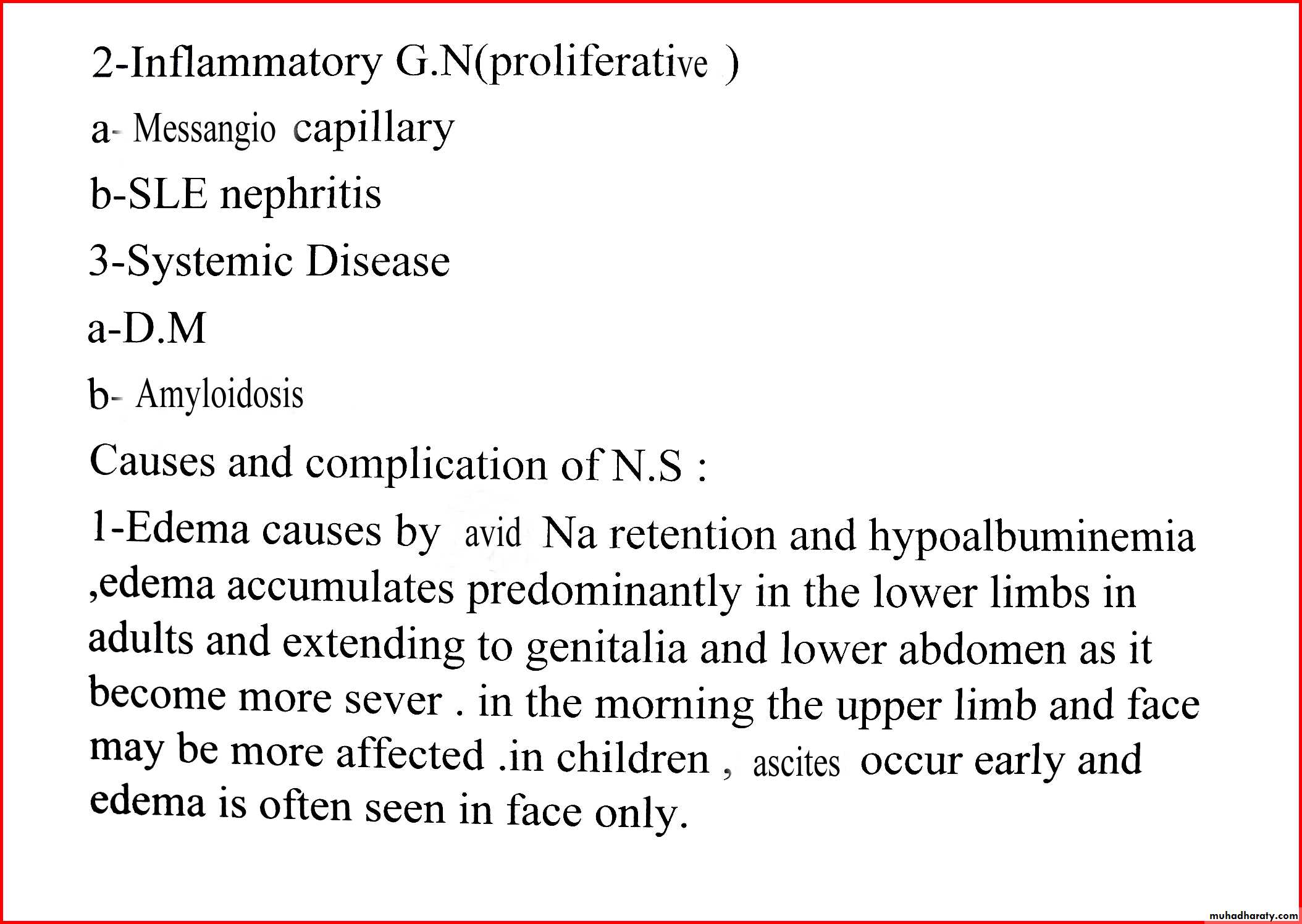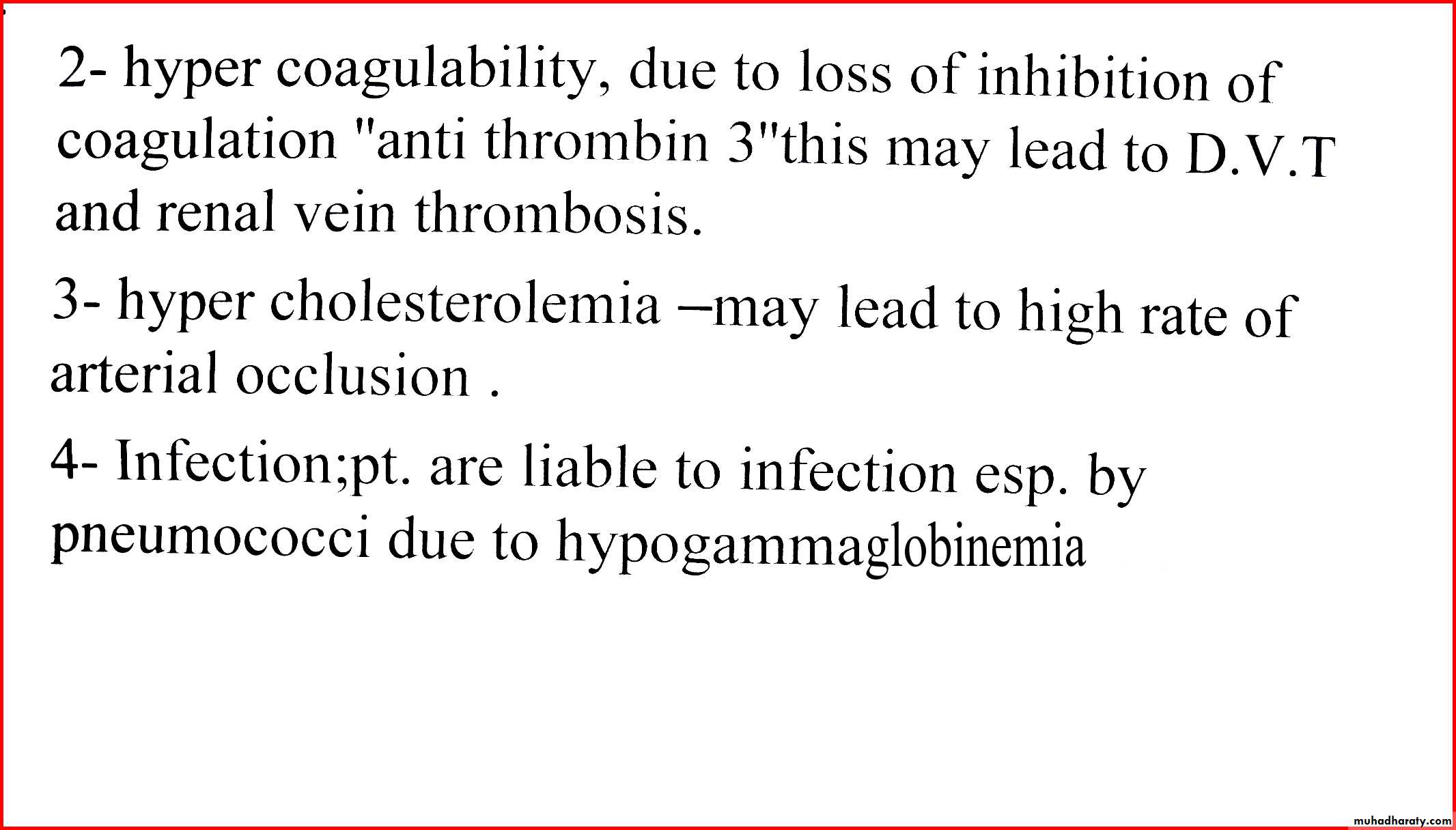Management of nephrotic syndrome; has four elements
1. establish the cause; there is important age – related causes e.g. in neonate congenital aetiologies are most common , in older children minimal changes nephropathy is the dominent cause of nephrotic syndrome .In later life the most cause of nephroic syndrome is membranous nephropathy focal segmental glomerulosclerosis , diabetes mellitus and amyloidosis rarely cause nephrotic syndrome in childhood ( MOSTLY IN OLDER PATIENTS)
2. Treat the cause of nephrotic syndrome if possible ;
In children with minimal change nephropathy initial treatment with cortico steroid ( 2 mg\kg) for few months and decrease the dose to the half till control of the symtoms with follow upthe symtoms with follow up
In older patient and in children unresponsive to corticosteroid renal biopsy is necessary unless there is specific cause (i.e diabetes mellitus , hypertention )
3. treat the symyoms : edema is treated and chould be controlled with low- sodium diet ( no added satls) with diuretics , in severe cases of nephrotic syndrome large doses of combionation of diuretics acting on different parts of nephron may be required ( loop diuretic plus thiazide plus amiloride).
In occasional patient with evidence of hypovolemia intravenous salt free albumin infusion may be needed
Over diuresis may lead to renal impairment through hypovolemia
4. prevent complication ; venous thrombosis can be prevented by anticoagulation , there is need for routine anticoagulation in all patients with chronic or servere nephrotic syndrome



